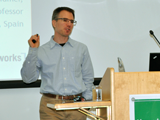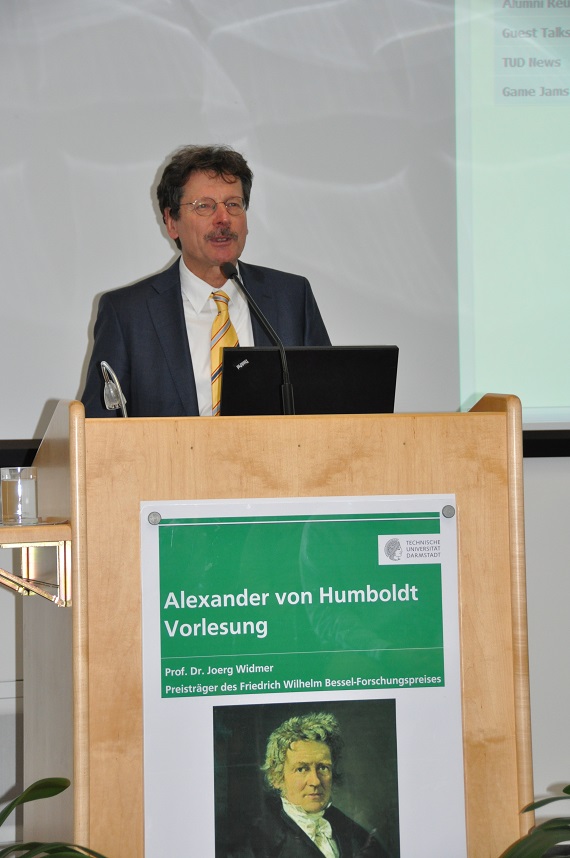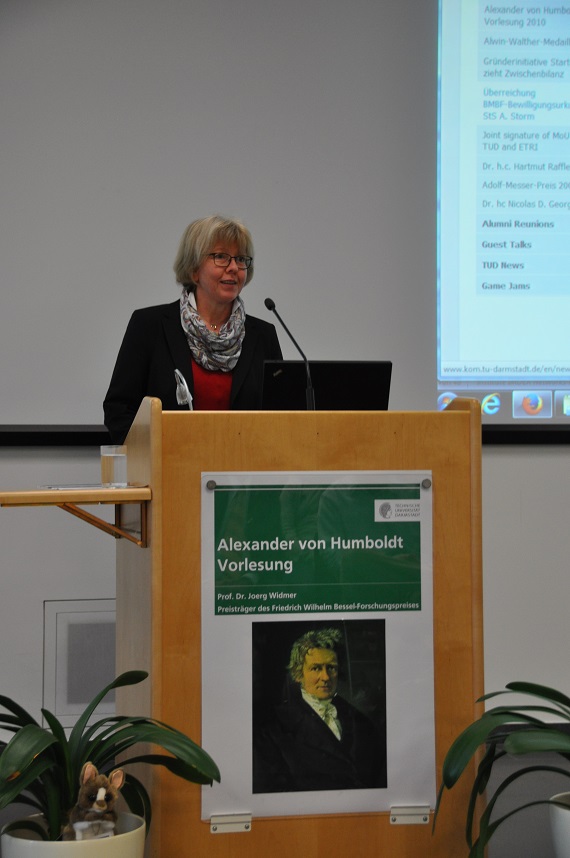Dr. Joerg Widmer, a Research Professor at IMDEA Networks Institute, is one of 20 scientists who have been awarded the Friedrich Wilhelm Bessel Research Award for outstanding research. Since January 2017 he is a guest scientist at the Department of Multimedia Communications of Tesnische Universität Darmstadt, in Germany.
 Award for Top Research
Award for Top Research
The Friedrich Wilhelm Bessel-Research Prize endowed with 45,000 euros is awarded to internationally renowned scientists from abroad through the Alexander von Humboldt Foundation. Dr. Joerg Widmer is one of 20 scientists who have been awarded this prize for outstanding research. The prize was followed by an invitation to carry out self-selected research projects in Germany for up to one year in cooperation with specialist colleagues.
The Humboldt Foundation promotes scientific co-operation between excellent foreign and German researchers. The selection committee continues to expect top performances and scientific influence within and beyond their own research field.
Intelligent Networks in High-Frequency Spectrum
Widmer studied computer science and did his doctorate at the University of Mannheim. Currently, he is Research Professor and Research Director at the IMDEA (Madrid Institute of Advanced Studies) Networks Institute, Madrid. Widmer's research focuses on wireless communication.
Widmer gave a lecture on the 19th of January, 2017, at the Department of Multimedia Communication of TU Darmstadt, where he will work as a guest scientist from that month and until the end of May 2017. The talk dealt with the topic of "scaling up next-generation wireless networks". His research addresses the problem of increasing data traffic in wireless networks and how these can maintain the necessary performance despite changing conditions. Widmer: "The big issue is how wireless networks evolve. My research is aimed at the different layers of data transmission. In the future, the networks have to develop much faster in order to keep pace with the volume of data."
Widmer's solution concept is the anticipation of the increased data volume as well as the subsequent adaptation of the network to the new conditions. The use of high frequencies in the millimeter-wave spectrum is intended to ensure the data rate even under uncertain conditions at a correspondingly high level. An application currently being considered is the use of a wireless location system to easily align the millimeter-wave directional antennas with little effort.
Diverse Cooperation Possibilities in Darmstadt

Prof. Ralf Steinmetz, who is in charge of the Multimedia Communication Department, pays tribute to the scientific work of the prize-winner and promises a lively exchange and the creation of new contacts through his stay at his specialty.
Darmstadt bundles a number of advantages as a location for Widmer: "I come from this region, I did my doctorate in Mannheim and thus there were already contacts. I knew the professorial chair, I knew Mr. Steinmetz well. Collaborations already existed and it is easy to expand them. In addition, there are many different professorships and thus a wide range of different topics."
-
News item in German: Bessel-Forschungspreis-Träger Joerg Widmer zu Gast bei KOM


